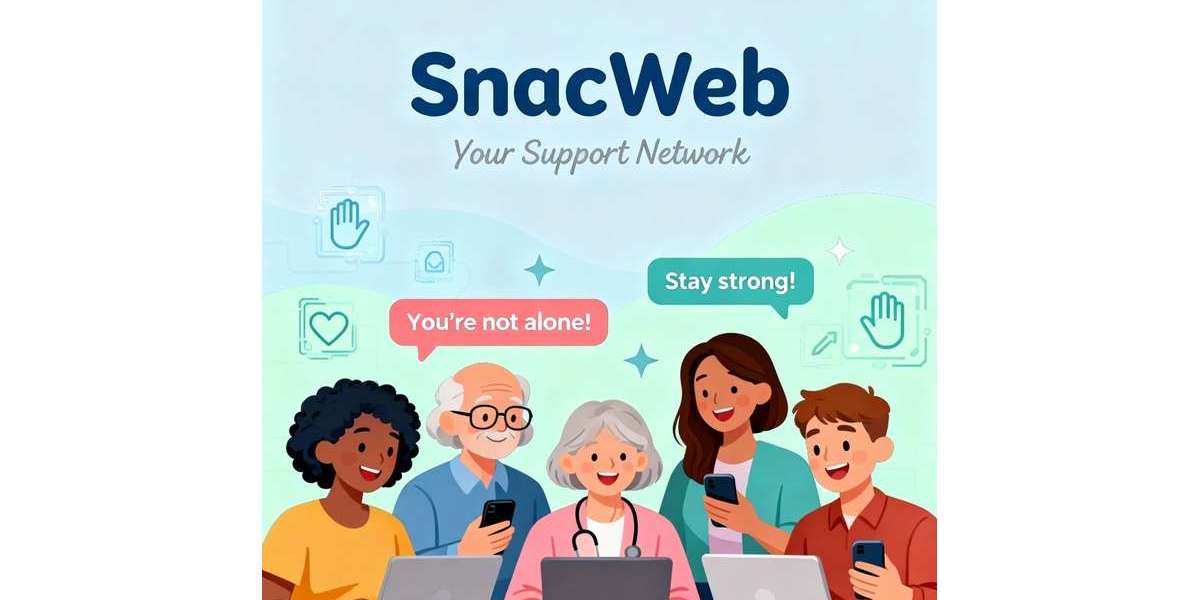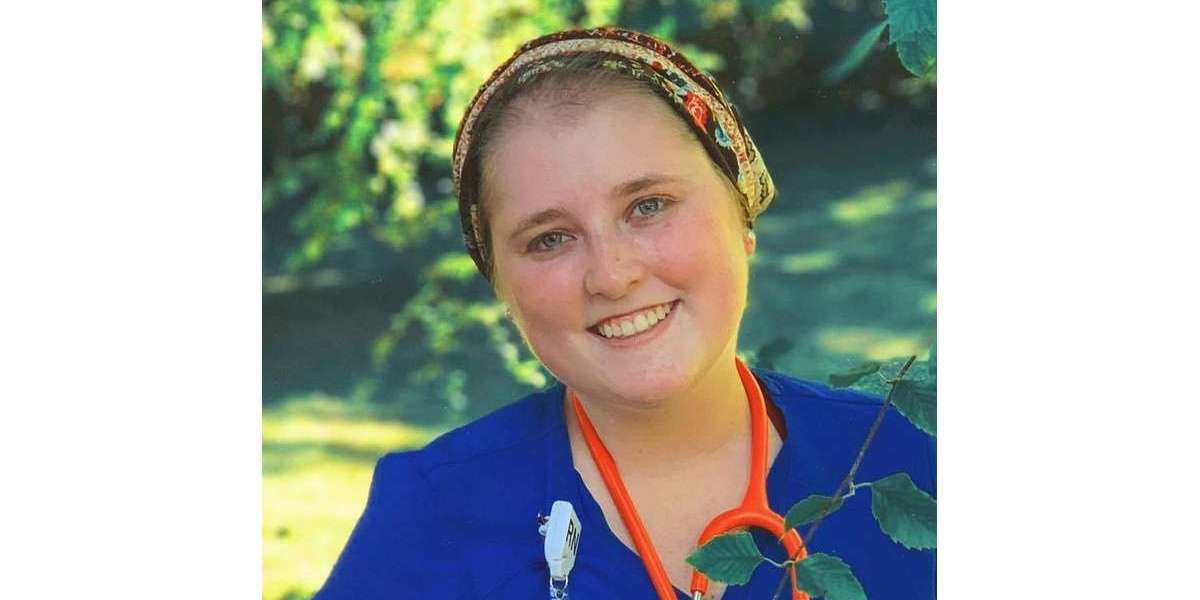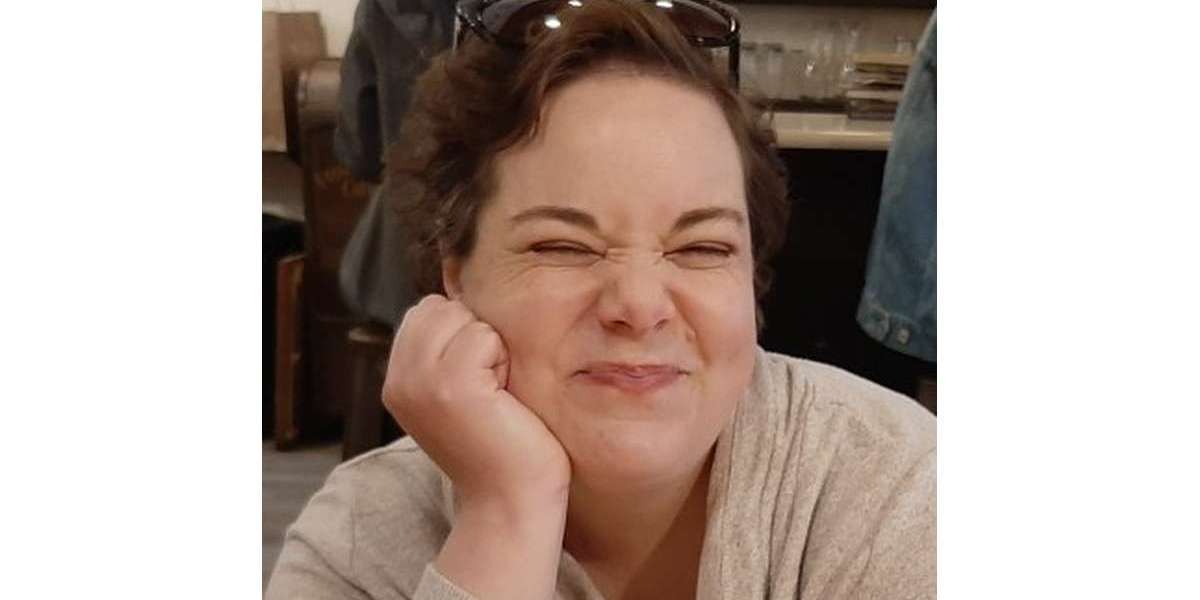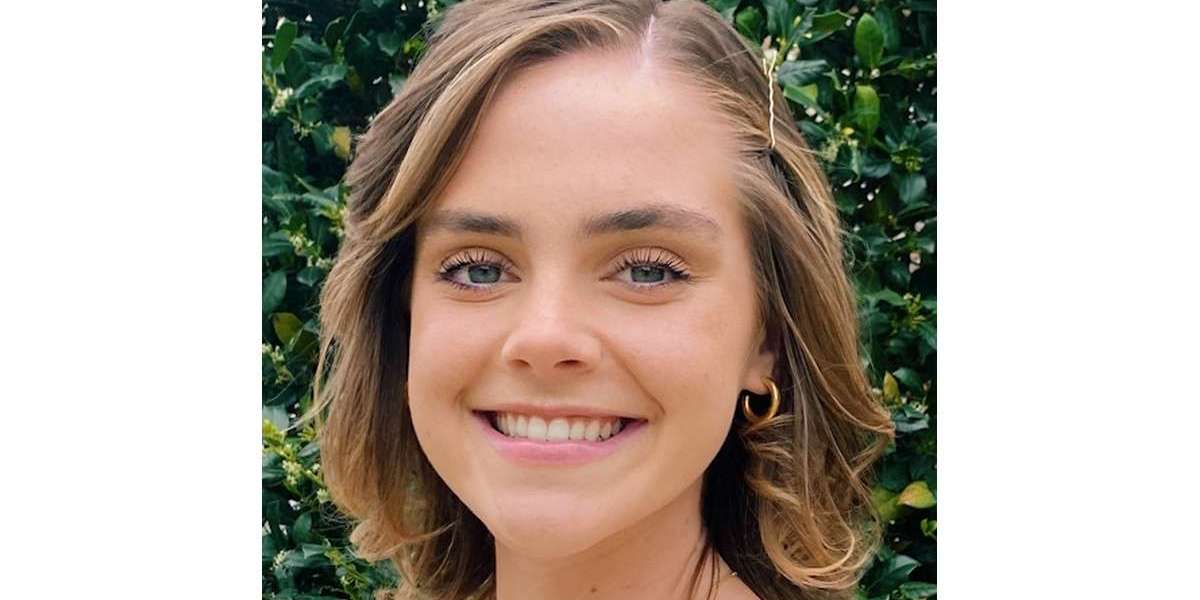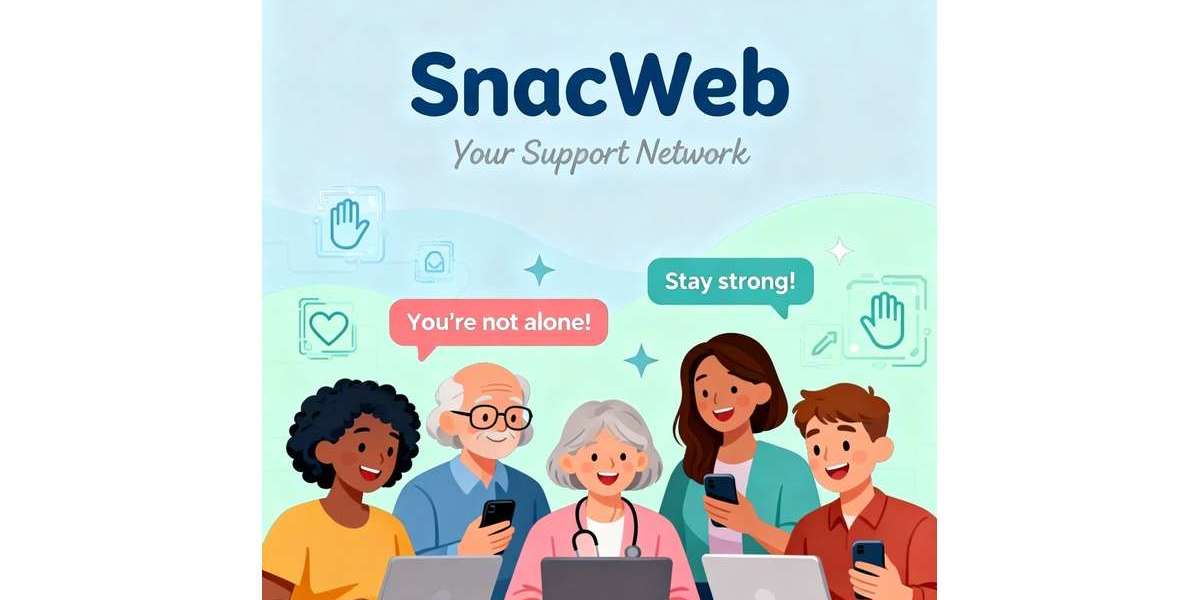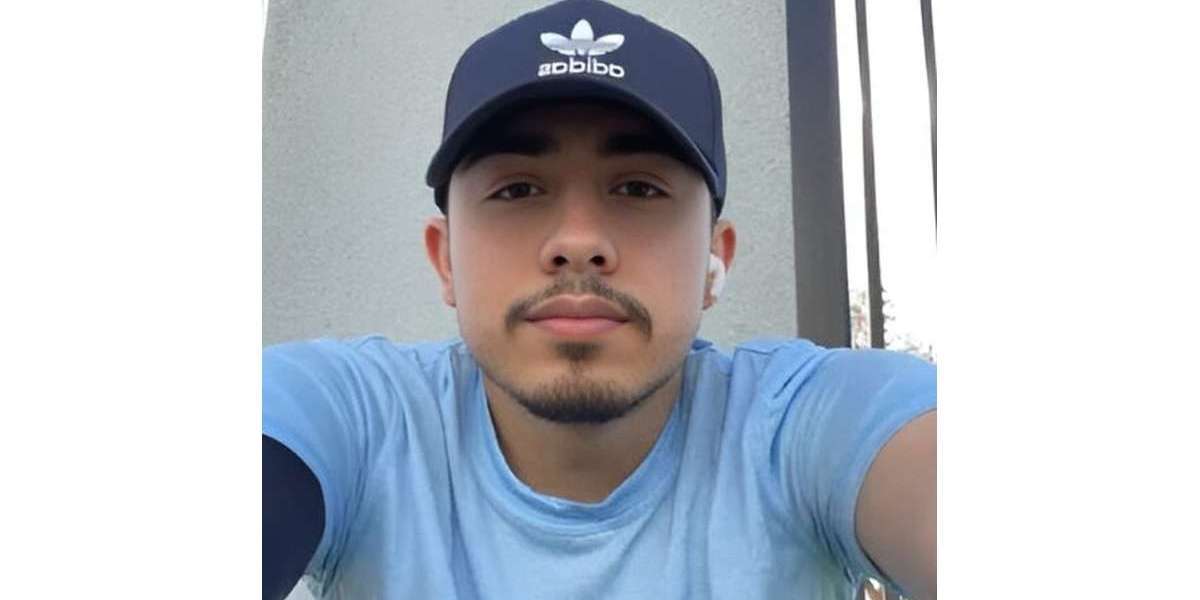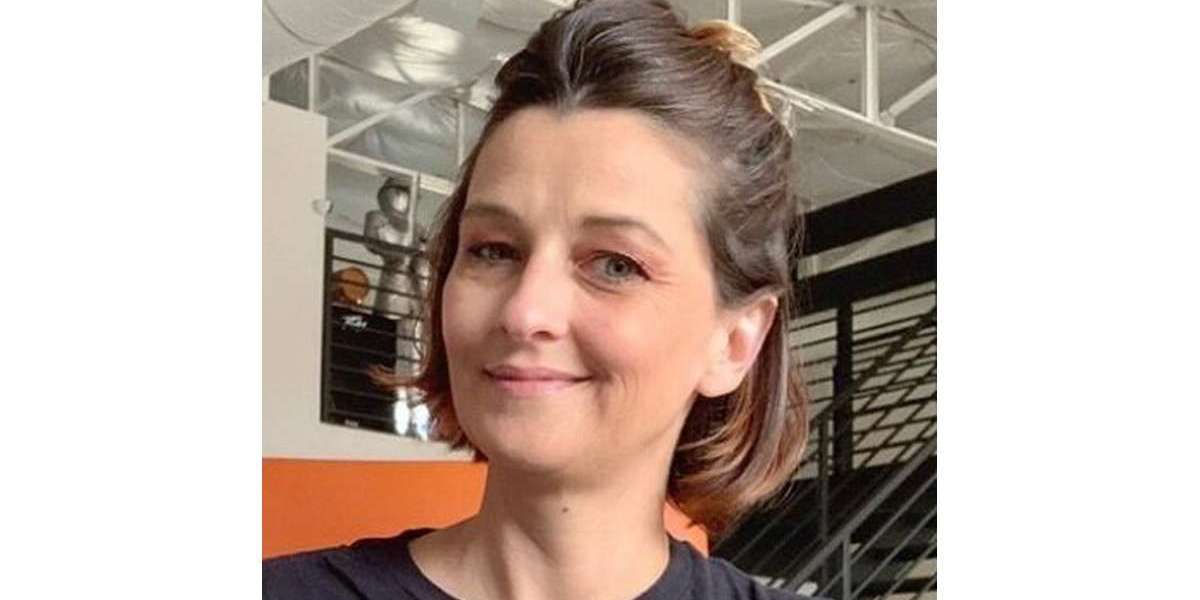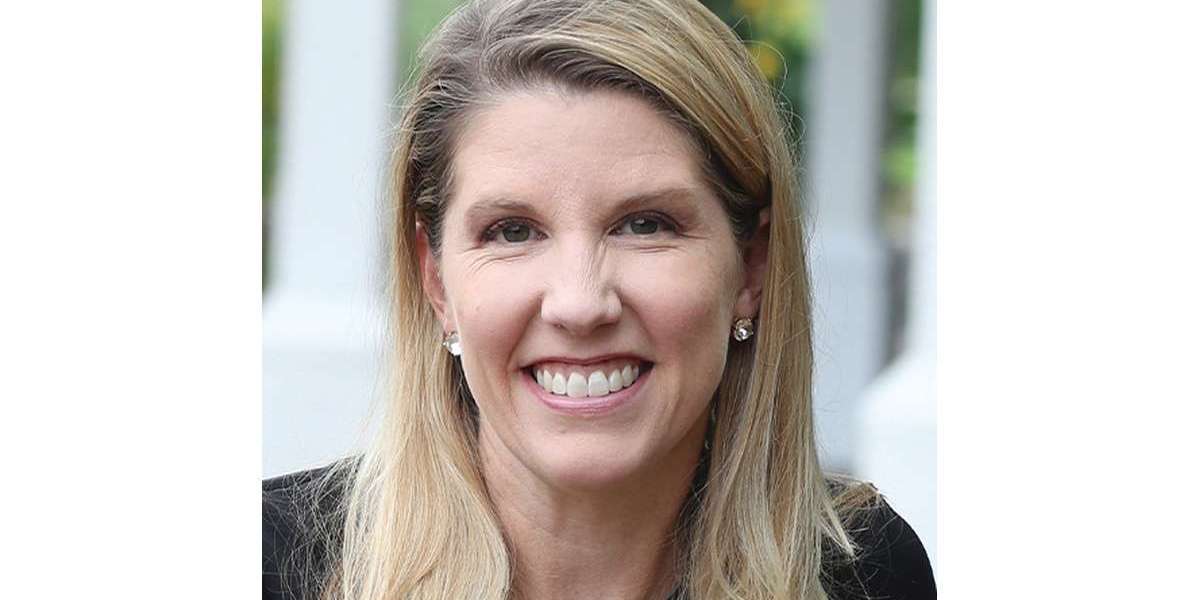Jenn’s Recurrent Melanoma Story
Jenn S., Melanoma, Recurrent (Stage 0 & Stage 3B)
Symptom: Appearance of asymmetrical, multi-colored, large mole on the shoulder
Treatments: Surgery, skin checks
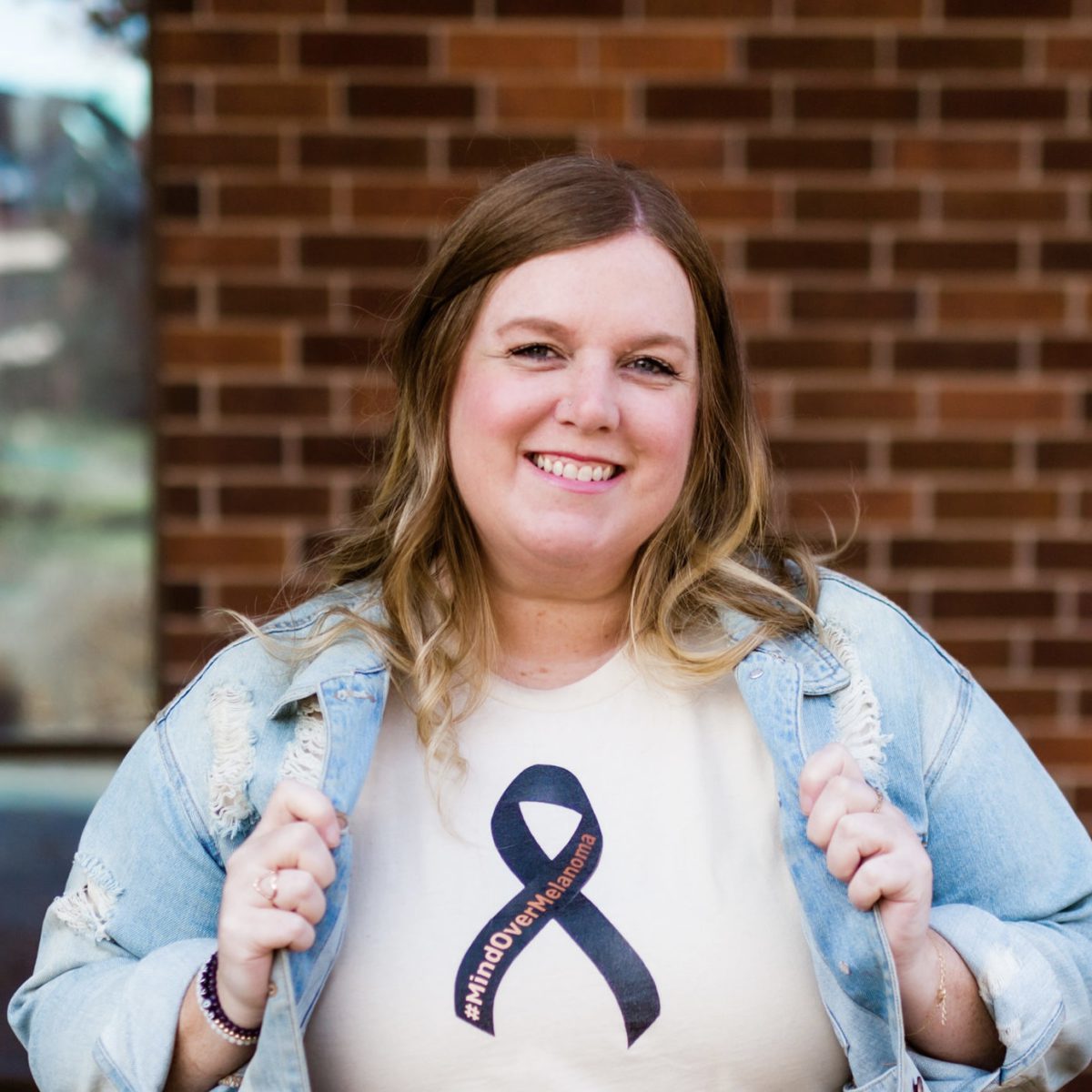
Jenn’s Recurrent Melanoma Story
Jenn, a recent college graduate, scored her dream job working for the Chicago Cubs. Years earlier, she had taken a health class that led her to learn the ABCDEs and warning signs of skin cancer. Then in 2014, she noticed an abnormal mole that matched 3 out of 5 of the ABCDEs of skin cancer. She visited a dermatologist that confirmed she had stage 1B melanoma.
Living by herself in Chicago hours away from family made recovering from her diagnosis difficult, so Jenn made the tough decision to leave her dream job, move back to her small town, and live with her parents. It was here that she discovered the burden her cancer diagnosis and recent life transitions had on her mental health which led her to seek help from a therapist.
After being cancer-free for 5 years, Jenn’s mental health was again negatively impacted by the effects of the pandemic. About a year after lockdowns began, Jenn had her second melanoma diagnosis which would be the first of 3 recurrences in 11 months.
Now a year cancer-free, Jenn shares her recurrent melanoma story with us, including how she worked on her mental health, what her experience with scanxiety has been like, making life-changing decisions after a cancer diagnosis, and her advice for those on their own cancer journeys.
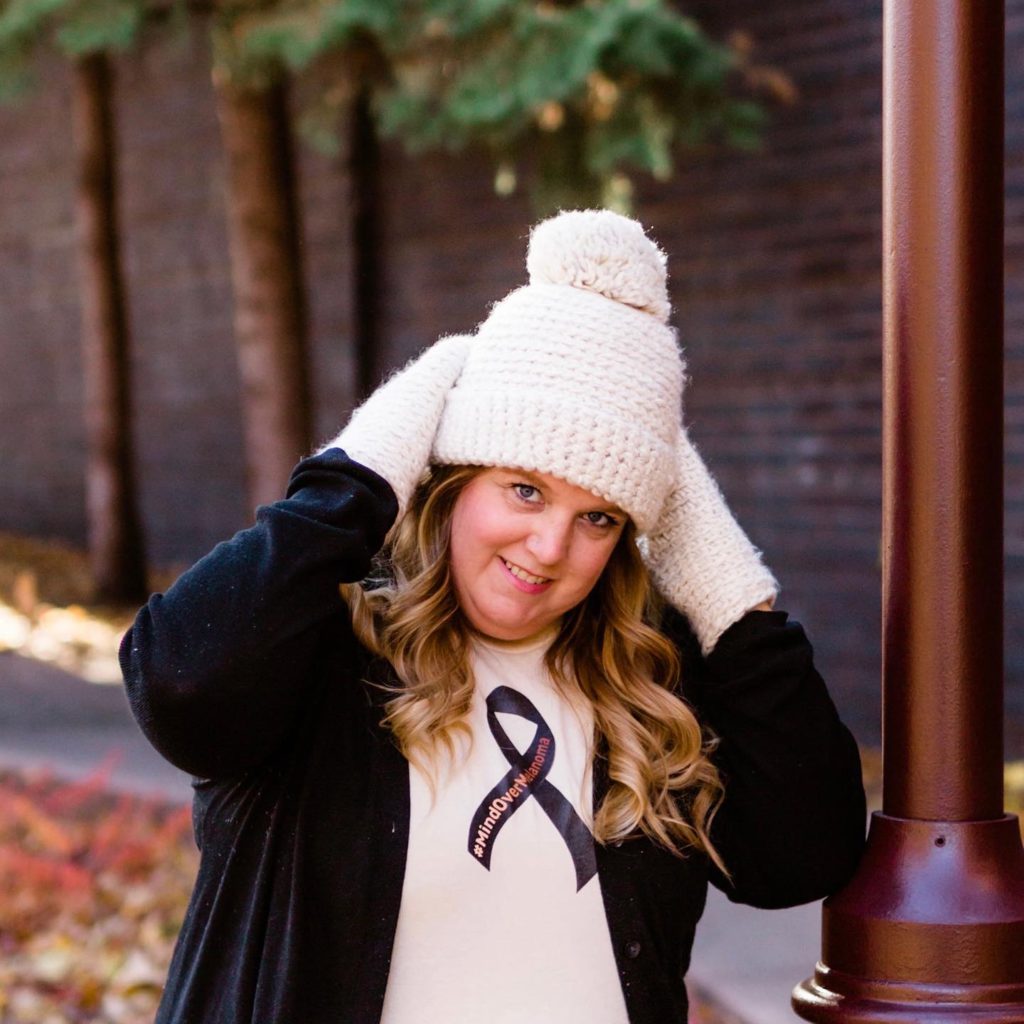
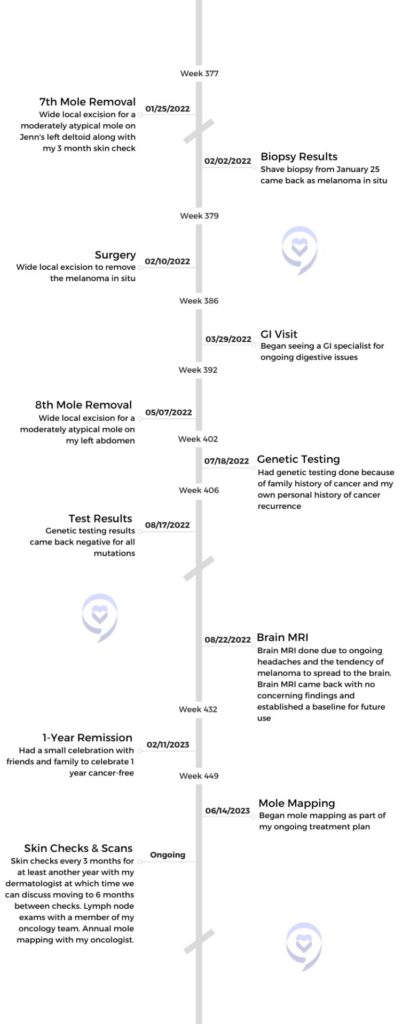
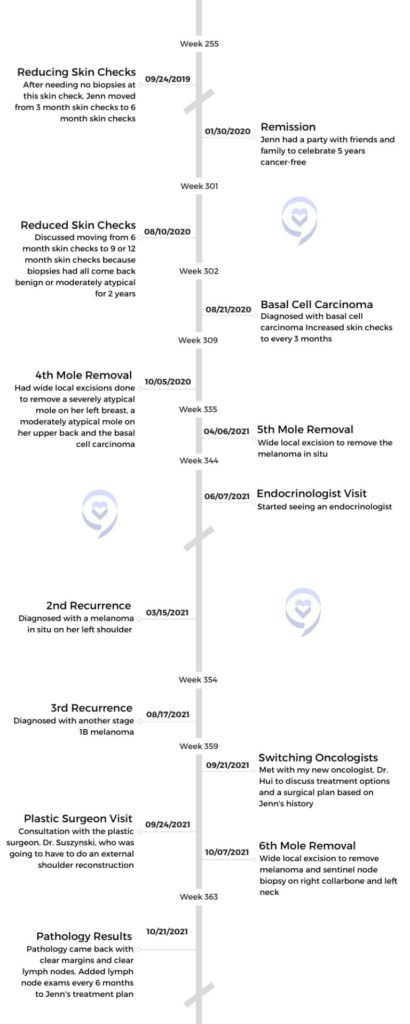

Try to change that perspective of, I’m lost and I don’t know who I am anymore, into this idea that you get to find out who you are now. Have fun exploring and trying new things and seeing what you love. You’re getting to know yourself all over again.
Jenn S.
This interview has been edited for clarity. This is not medical advice. Please consult with your healthcare provider for treatment decisions.
Symptoms
Tell us about yourself
My name is Jenn and I am originally from a smallish town in western Wisconsin, but I currently live in Saint Paul, Minnesota.
I grew up in a family that absolutely loves sports, so I ended up going to college for sports. I didn’t play, but I got my degree in sports communication and then went on and got my master’s in sports management. When my first job outside of college was with the Chicago Cubs, it was a pinch-me moment. I’ve worked for 4 professional sports teams, including winning a WNBA championship with the Minnesota Lynx.
It was this random general education class that I took when I was in college that may have ended up saving my life.
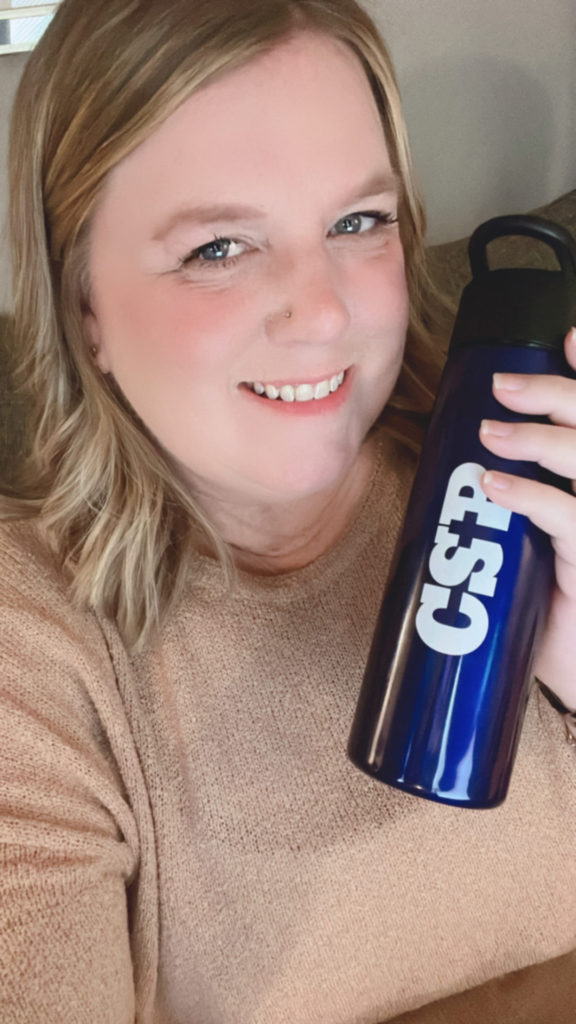
Today I am the director of marketing at a small financial planning firm here in the Twin Cities. I also teach part-time in our communications department at my alma mater, Concordia University Saint Paul.
I am a huge advocate of animal rescue, including having my own rescue, Xena The Warrior Kitty. I used to love doing fun runs and 5Ks and I just started getting back into it between my first and second melanoma diagnosis, but it got really hard to keep up with during the ongoing surgeries. That’s something I’ve been feeling really called to try to get back into, so hopefully soon.
Lastly, I really love to read and write. I have for as long as I can remember. I wrote my first book when I was in second grade, one of those fill-in-the-blank hardcover books that they give you. Writing has really become a big part of my healing process and processing everything I’ve gone through with cancer.
How did you know the warning signs of skin cancer?
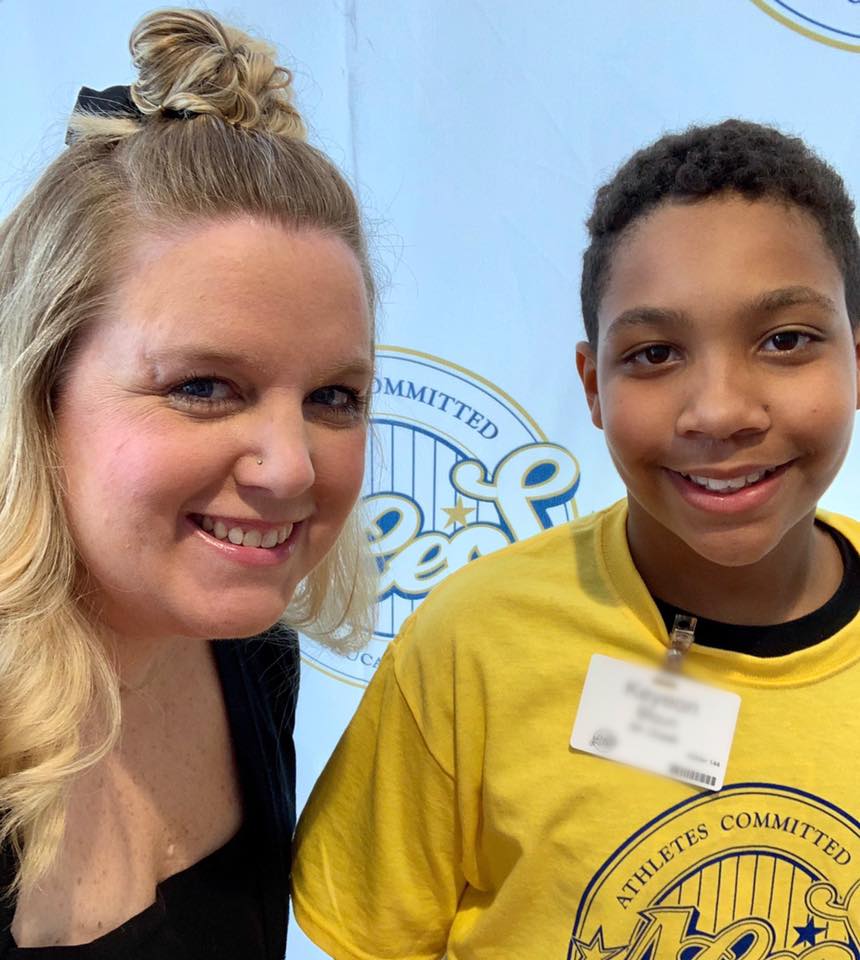
It was this random general education class that I took when I was in college that may have ended up saving my life. As part of our general education requirements, we had to choose a physical education class and I ended up taking a general health class. As part of that curriculum, we were each assigned to do a research project and report on a different illness or disease. Mine ended up being skin cancer, something that I knew nothing about.
I learned the different types of skin cancer and the warning signs. What really stuck with me were the ABCDEs of melanoma. That really came full circle.
What were your first symptoms?
It was a dark, chocolatey brown on one half and even darker brown on the other half. Right in the middle, there was a black dot, so the color was very unique.
A few years later, I was living in Chicago, I was working for the Cubs, and it was late 2014. At some point, I started to notice that there was a mole on my right shoulder that just didn’t sit right with me. I didn’t know how long it had been there. I knew it hadn’t always been there, otherwise, I wouldn’t all of a sudden be noticing it. I can’t trace back to when it first appeared. The first picture I remember seeing it in was around July of that year when I went back later and looked.
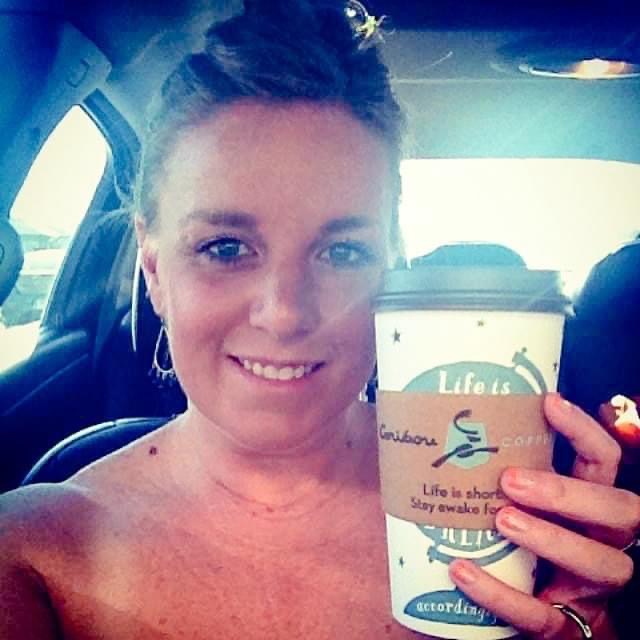
As far as the ABCDEs go, it was the color that really stood out, and it was asymmetrical and the diameter. It was a dark, chocolatey brown on one half and even darker brown on the other half. Right in the middle, there was a black dot, so the color was very unique. If you drew a line down the center, it didn’t match, and it was larger than the size of a pencil eraser, which is 3 of the 5 things that you look for when it comes to melanoma. That was in late 2014.
I went home for the holidays and I showed it to my mom. Of course, she was trying to be reassuring, and she said, “I’m sure it’s nothing, but you should definitely make an appointment with a dermatologist. If nothing else, you’ll get peace of mind.”
Making an appointment with the dermatologist
When I got back to Chicago, I got an appointment very fast. Maybe it was because of the holidays, because these days the dermatology wait is probably 6 months to get in and see somebody. But I was able to get in within a week. It was the first Tuesday of January. I went in and met with the dermatologist. He looked at the mole, put his hand on my shoulder, and said, “Thank you for coming in and showing me this.” My heart just sank. His reaction was very sobering. In a way, I think it helped to prepare me.
You’re never prepared to hear the words “You have cancer” but I knew that it was serious and it was a good thing I had come in when I did. I would tell anyone if you see something, if you have any doubts, trust your gut and make the appointment. Worst case scenario, it’s nothing, and that’s what you would hope for.
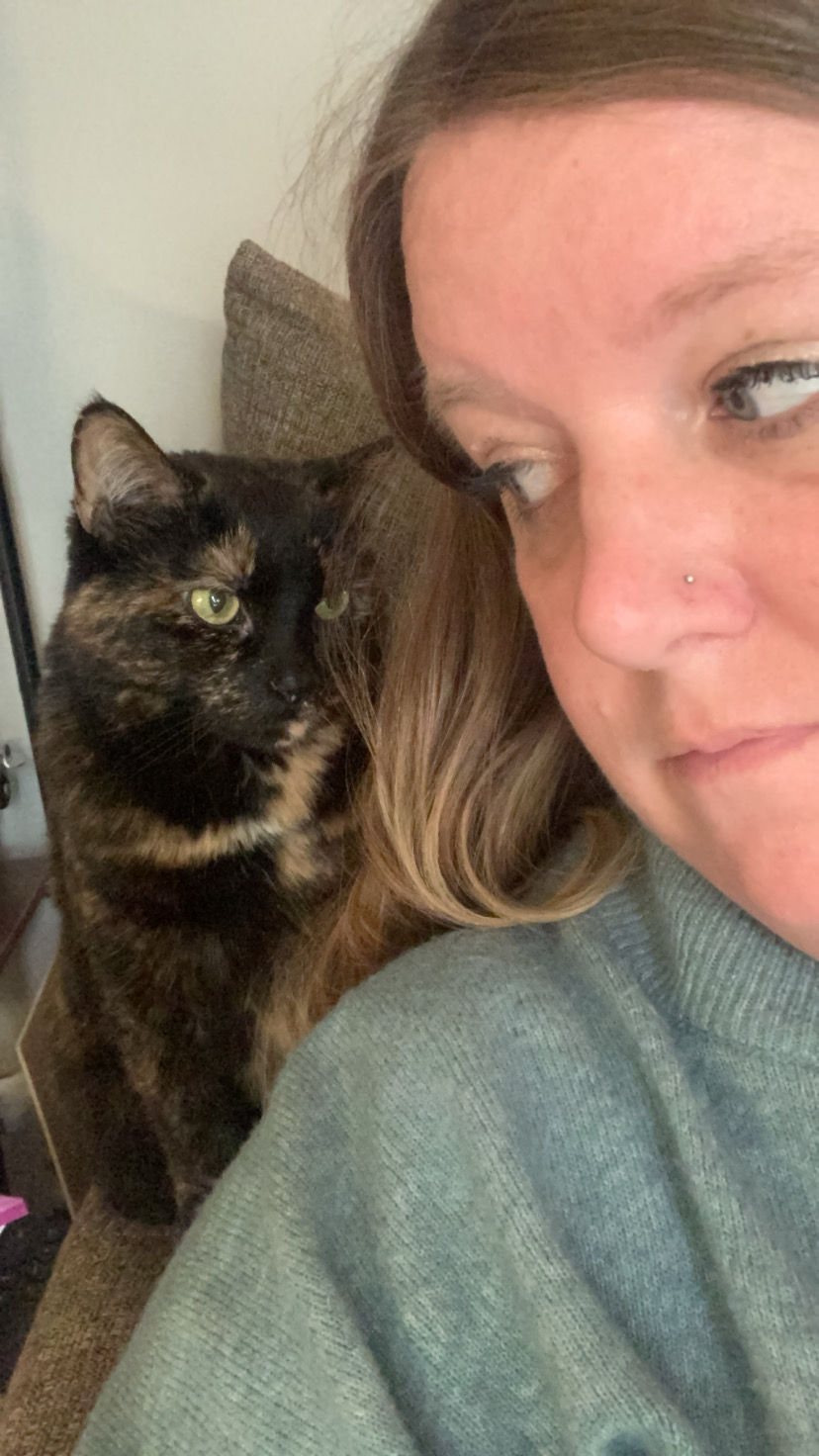
Getting a biopsy and awaiting the results
When I left the appointment that day, they did a shave biopsy and sent it down to pathology, and told me I would probably hear from them in the middle of the following week. If I didn’t hear from them by that following Friday, give them a call.
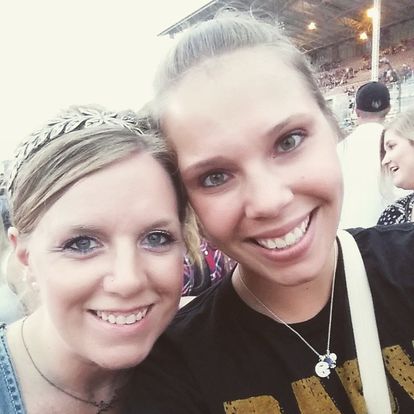
Less than a week later, on Monday, I was at work, sitting at my cubicle in our office, and got a phone call and didn’t recognize the number. I let it go to voicemail and then saw that it was from my doctor and I was not expecting to hear from them that soon. I excused myself to the hallway to give them a callback. The specific clinic that I went to in Chicago has a screening process. When you call, you tell them who they are, who you are, and who you’re calling to speak to, and they’ll put you on hold while they pull up your records and look to see if they need to get somebody right away. It was also the end of the day, 4:30 in the afternoon, so nurses and doctors were probably getting ready to leave, finishing up their last appointment.
Diagnosis
The doctor came back on and he’s like, “I’m sorry to tell you this. It’s cancer.” I remember nothing else from the phone call after that.
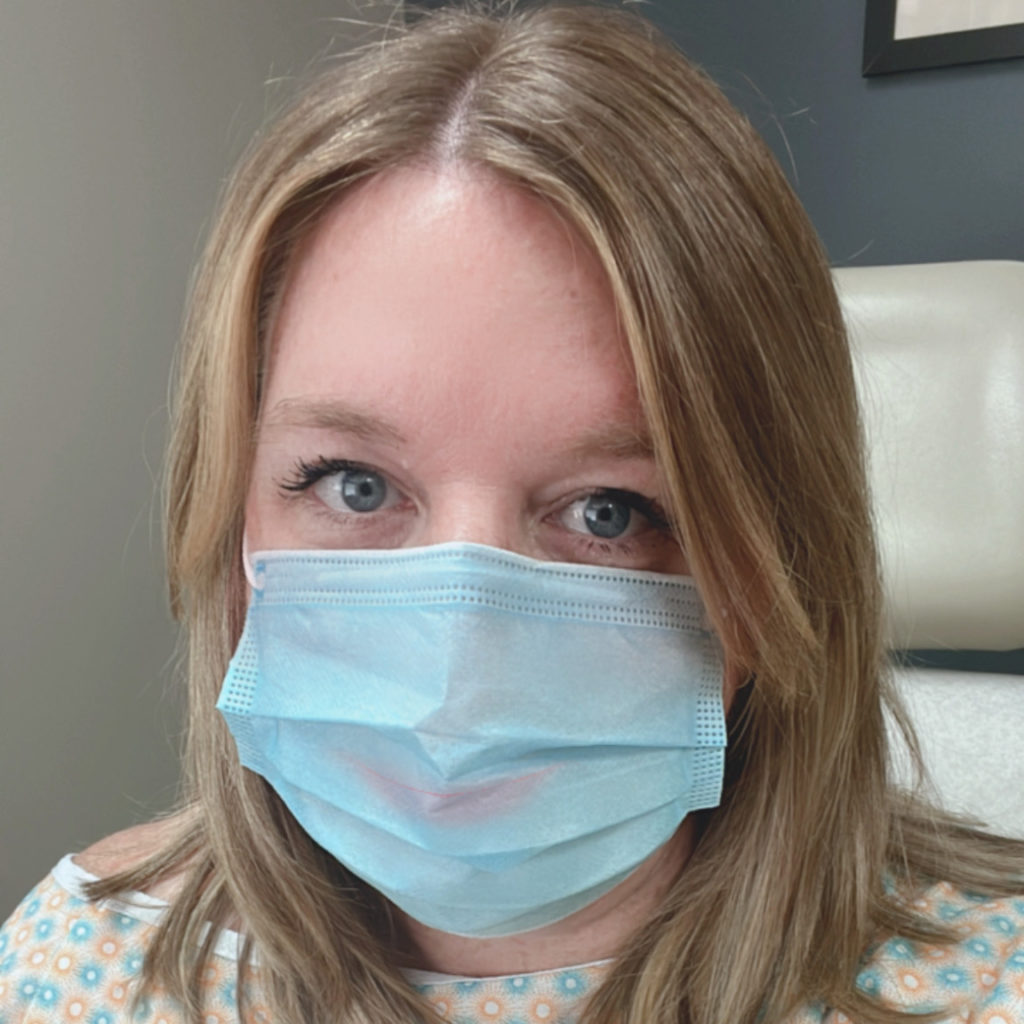
What did the doctors say?
She put me on hold and she came back and said, “Jennifer, they want to speak to you right away. I’m going to put you through to the doctor.” It was another one of those moments where my heart just sank. I remember so vividly, I was outside the elevator bank, and one of my co-workers was coming off the elevator. I smiled at him like everything was fine, and inside I’m just like, this is going to change everything. The doctor came back on and he’s like, “I’m sorry to tell you this. It’s cancer.” I remember nothing else from the phone call after that.
»MORE: Reacting to a Cancer Diagnosis
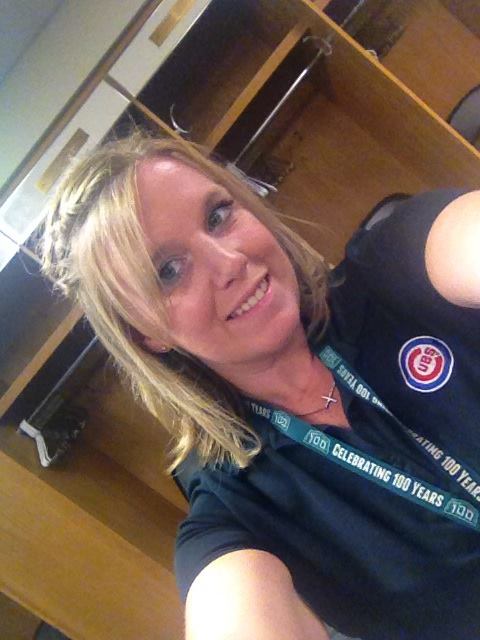
I texted my boss. He was aware of the situation, so knew I would be hearing something new, that I’d had the appointment the week before. I texted him and let him know I’m going to be leaving a little bit early. Once a week, we work late and it was my day to work late. He’s like, “Don’t worry, we’ll cover it.” Immediately after texting him, I called my mom and it was calling her and having to say those words out loud that really made it real for the first time.
Being alone through a cancer diagnosis
That was one of the hardest things going through that alone. It did lead to me deciding to move back home for a little bit with the longer-term goal of moving close to home, but still in a big city. I love my small town, but I’m a big-city girl at heart.
In the coming days, I made an appointment on that phone call to have a consultation with an oncologist that Wednesday. My family was 5-hours away by car, and I knew they would want to come down for the surgery and treatment and all of that.
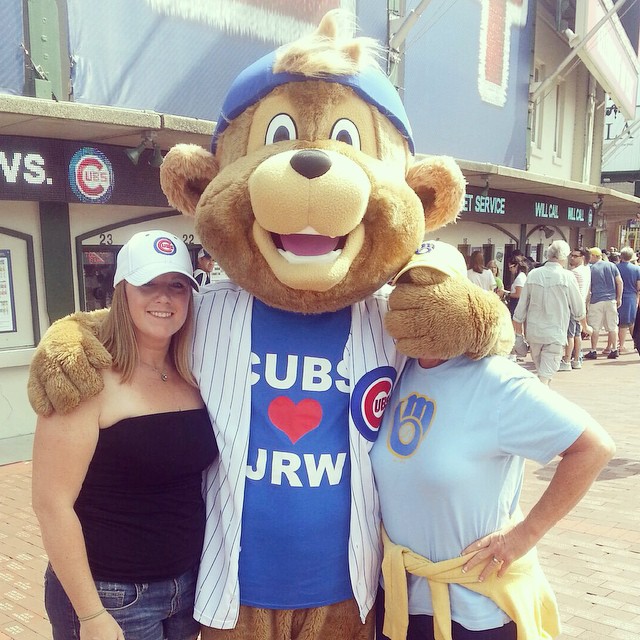
The oncologist was great. We called my mom on speakerphone. She was able to be on speakerphone through the entire conversation which was really helpful because I just found out that I had cancer. My mind is spinning. The questions I have are definitely not the questions she has and the odds of me remembering anything, I definitely didn’t take notes. We were giggling at my mom and all the questions she would ask. In the end, I was really grateful because those were things that, as we got closer to my surgery, I would wonder about and she had the answers and it hadn’t occurred to me.
What was your staging?
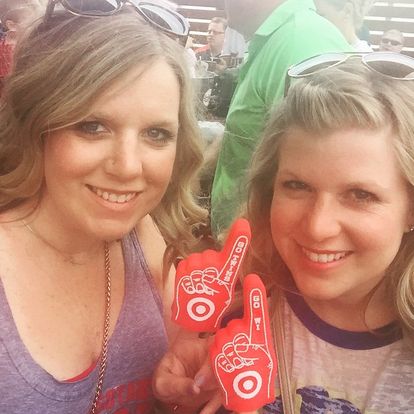
They were able to give me a couple of different dates for options for my surgery. Based on the shave biopsy that they had done, their initial estimate of staging was that I was stage 1B, but the only way to be sure of that was to also do a sentinel node biopsy and make sure that the cancer hadn’t spread to my lymph nodes.
Describe what a sentinel node biopsy is
A sentinel node biopsy is a procedure typically done on the day of your surgery. You go in a little bit earlier before your operation. They will inject a dye into the area where your cancer is, then you have to sit and wait for that dye to travel through your bloodstream so they’re able to see if the cancer had spread. The dye is very painful. The closest thing I can compare it to is a Lidocaine injection times 50. It burns, you can feel it traveling through you.
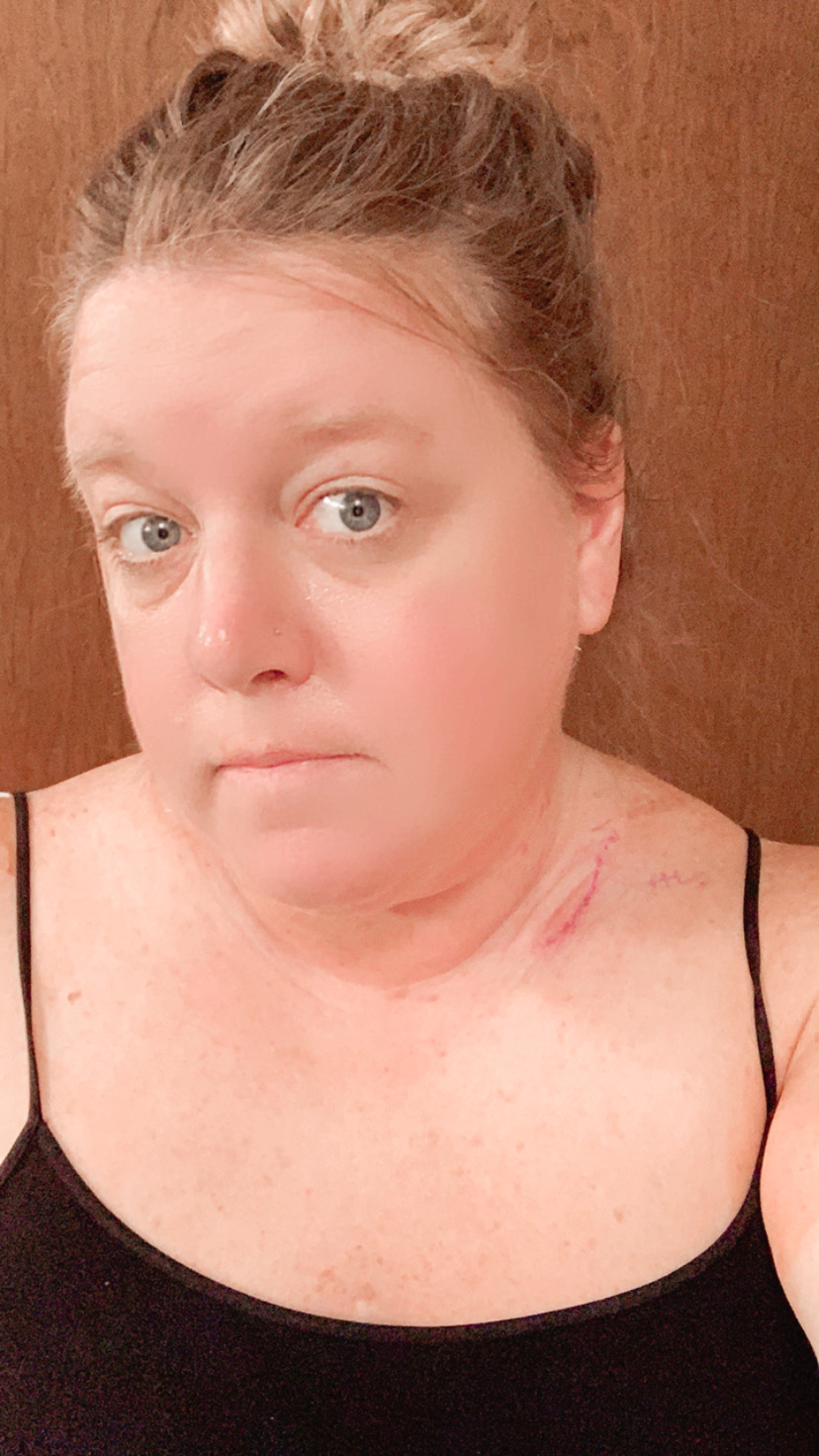
After it’s had time to travel, they take a bunch of photos, so you have to stay really still. It’s about a 15 to 20-minute process. You’re slid into a tube, very similar to an MRI, and they scan and take pictures. Any of the lymph nodes that light up are the ones that they end up removing during surgery. I actually had lymph nodes in 2 different areas that lit up. I had to have 2 removed from under my right arm and one removed from the right side of my neck.
Surgery
How long did your procedure take that day?
Because I had to be there early for the sentinel node biopsy – I had to be at the hospital at 8 a.m. – it was actually so early that my family wasn’t able to be there yet. I traveled to the hospital alone, on the Red Line train in Chicago with my little backpack, and I brought a stuffed animal with me. I felt like a little kid traveling to see their family, but I needed something to comfort me, especially going in alone.
I went in at about 8:00 for the lymph node tracing, and from start to finish, I want to say it took about 2 hours. I didn’t have a watch on me because I wasn’t allowed to wear any jewelry that day so I just left it behind. I didn’t have an exact amount of time, but it was between 10 and 10:30 when I was brought back out to the waiting room in that area where then my sister and my mom were both waiting for me and were able to be with me until my operation. From that point, they brought me down to get checked into the operating room for the surgery. My surgery was scheduled for one with anesthesia and surgery prep around noon.
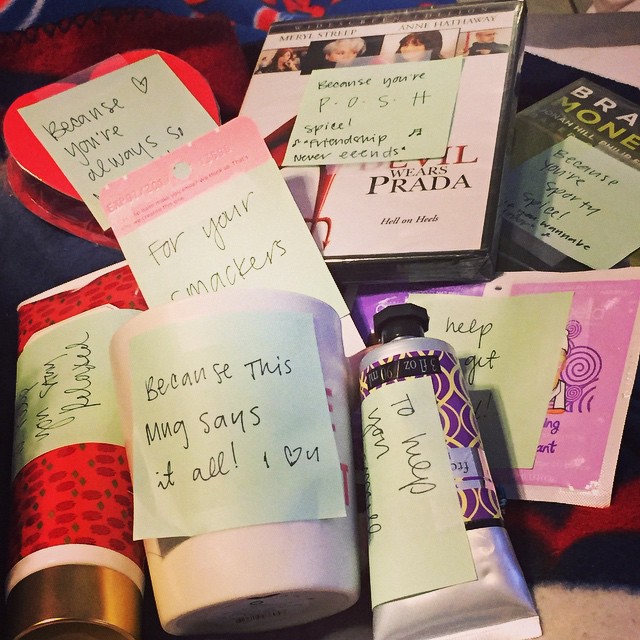
»MORE: Cancer Surgery Treatments
There was a little bit of a gap in between so my mom, sister, and I were brought down to the operating room. They got me set up in the operating room area and in a gown. So many people came in to talk to me. I had a plastic surgeon come in and talk to me because, on the top of your shoulder, there’s not a lot of extra skin. The oncologist was doing the surgery to remove cancer and the lymph nodes and the plastic surgeon was coming in to then stitch it back up so that there would be less of a scar and to maintain the skin that was there as best as they could.
Being prepped for surgery
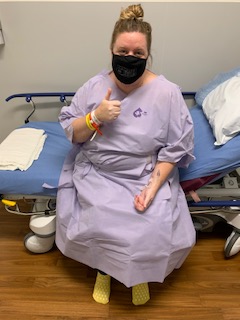
The anesthesiologist was coming in and talking to me about complications and risks and waivers, the plastic surgeon coming in and covering all of that, and then the oncologist coming in and covering all of that too. That was when I really started to get scared. I was talking to my mom and my sister and I was joking like, Mom, if anything happens, you get my cat. Jill If anything happens, you get my shoes. Laughing was my coping mechanism for it to help keep the fears down.
I’d never had surgery before this. Luckily, after they gave me the anesthesia, my mom and my sister were able to walk beside my bed while they started wheeling me down to the O.R. The last thing I remember is my sister being on one side and my mom being on the other. I was out cold before I even got to the operating room.
How long did the surgery take?

I believe the surgery took about 2.5 to 3 hours, and the next thing I remember is waking up in the operating room, and I was incredibly nauseous. That’s a common side effect of anesthesia, but because I hadn’t had surgery before, we didn’t know that I was going to have that. I was in the recovery room for a pretty long time because I wasn’t able to leave until I was able to at least keep crackers and some water down through an IV. They were able to give me anti-nausea meds, but it was at least half an hour before I could even sit up without feeling nauseous.
I believe we left around 4:30. From the time I got there at 8 a.m. until the time I left, it was 8 to 4:30. About 9.5 hours.
Describe your recovery process
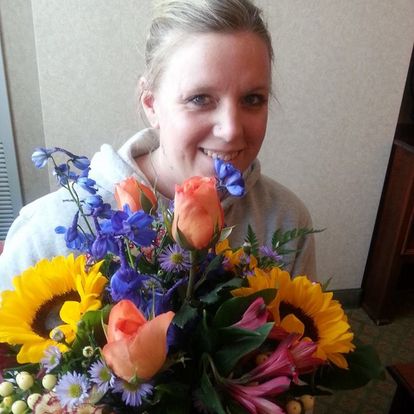
That was the first time that I realized that if I had to continue doing this on my own, I didn’t think it was realistic to do so far away from my family with that extra support.
After the surgery, I had to be off of work for at least a week and a half, and then I was going to be able to return for 2.5 days with restricted mobility. Because I lived in Chicago and didn’t have a car, it was extra challenging because I took the red line to work every day. On the train, especially during rush hour, you’re lucky if you get a seat. There was no realistic way for me to stand and hang on to a bar for balance having just had major surgery on my shoulder.
My mom and my sister were able to stay through the weekend and they helped me get up, set up with groceries, get things close by me in my apartment, and set me up as best as they could.
I ended up having, not a reaction to Vicodin, but I’d never had it before and the Vicodin ended up making me very nauseous as well. There were days when I’d be laying on my side trying to eat something before taking Vicodin to manage it because it made me so sick to my stomach.
The doctor prescribed a new medication that would help with the pain, but would hopefully not have the same side effects. We were in the middle of a snowstorm and I didn’t have a car. A friend of mine had to dig the car out of a snow bank to go get it for me. That was the first time that I realized that if I had to continue doing this on my own, I didn’t think it was realistic to do so far away from my family with that extra support.
What was the result of your surgery?
It took about a week and a half to get the results from my surgery pathology. My lymph nodes, all 3, were confirmed clear. There had been no spread so that confirmed a stage 1 diagnosis. Then the plan was skin checks every 3 months for 5 years to be reassessed in 3 years, depending on if we found further spots, if I had other recurrences or anything like that.
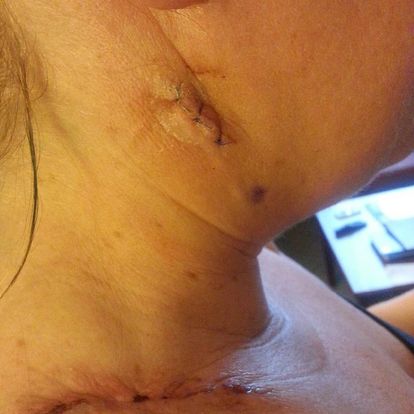
How did you process your cancer diagnosis?
I had no idea what was to come but didn’t really process it because everything happened so fast. My immediate reaction was just to put it behind me.
My very next skin check just happened to be the day before my lease was up on my apartment. Knowing that my skin check was the day before my lease was up left this feeling of my life being really uncertain. A lot of that was probably cancer too, but at the time, I hadn’t even processed the actual diagnosis. Everything happened so fast. From the time of my appointment with the dermatologist where they did a biopsy until the surgery where they actually removed the melanoma was less than 3 weeks.

I remember after the surgery when we got the pathology that everything was clear, I was like, that was it? There was a lot of guilt surrounding that because so many people have more challenging cancer diagnoses and go through a lot more treatment. I had no idea what was to come but didn’t really process it because everything happened so fast. My immediate reaction was just to put it behind me.
Mental Health
Making big decisions due to a cancer diagnosis
When I had that skin check, I was like, Well, what if this comes back? I can’t do this on my own. It’s really hard. I had amazing friends in Chicago but had not even been there for 2 years, so I didn’t have the same strength of relationships that I had back home. I also had my foot in the door at an incredible organization. I was halfway through getting my master’s degree in sports management at that point, so I felt like I was having to choose between 2 futures.
Do I choose my career knowing that health-wise, that may be more difficult or do I choose having my family close by in case my health does take a turn? But this may have a huge impact on my career. I went back and forth no less than 10 to 15 times a day. I drove my mom crazy. I was calling her multiple times a day. I would call her when I woke up in the morning, when I was walking to the train to go to work, and on my lunch break. She’s like, “Jenn, you just have to pick one. There’s no right or wrong answer. It’s whatever you think is right for you.” I was like, well, what do you think? She’s like, “I can’t make that decision for you. You have to make it for yourself.”
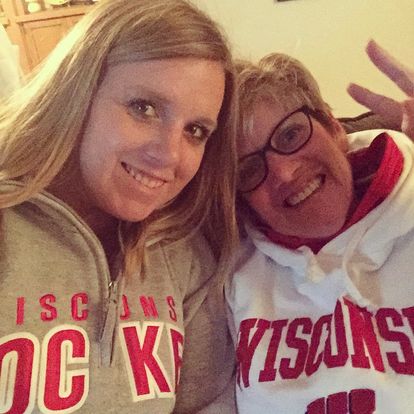
Ultimately I did end up deciding to go home, but that was really hard too, because that meant I wasn’t going to have a job. I hadn’t lived at home for years, and it felt like a huge step backward. Going from a big city like Chicago to my small hometown where I wasn’t close with a lot of my classmates from high school, it didn’t feel like I had a lot there. It was a really difficult transition.
»MORE: Read More About Cancer Support
Struggling to transition to life changes post-cancer
I’ve now developed a healthy relationship with the sun, but for a while, if it was between 10 and 2, I was terrified to be outside.
When I was back home, I first leaned into running, taking care of myself, and getting outside. A lot of anxieties crept in. I had melanoma, which is skin cancer, so I want to go for a run. Typically I was a middle-of-the-day runner. I’m not going to run outside in the middle of the day because now, to a degree, I’m afraid of the sun. I can’t have this cancer come back. I’ve now developed a healthy relationship with the sun, but for a while, if it was between 10 and 2, I was terrified to be outside. I was afraid that something I had done had caused this and I didn’t want to cause it to happen again.
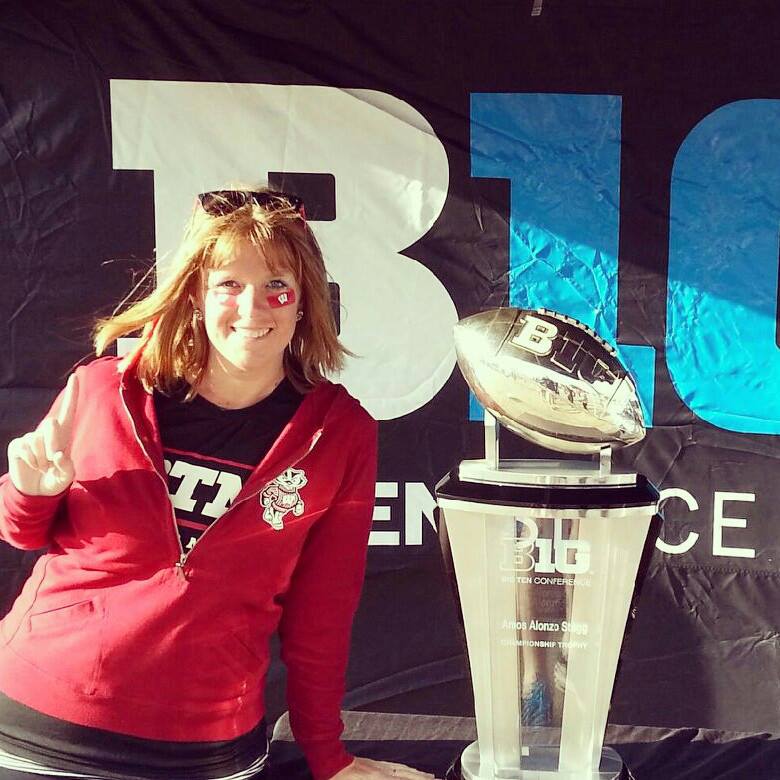
I also wasn’t working, so I had a lot of free time. I felt somewhat worthless. I was actually finishing my master’s at that time, but I placed so much worth in this career that I was working towards that all of a sudden, feeling stagnant was really difficult. I was applying for a ton of jobs up in Saint Paul, Minneapolis, which is a pretty big sports community as well, and just wasn’t hearing a lot back. That really took a hit on my self-esteem.
All of my friends were either in the Twin Cities, which is an hour’s car ride away, or back in Chicago, which was a 5.5-hour car ride away. My parents were essentially my entire social life.
What was the state of your mental health after cancer?
I had struggled with depression in the past, so when that thought crossed my mind, I immediately was aware of it and caught it and was like, this is not okay. I don’t want to feel this way.
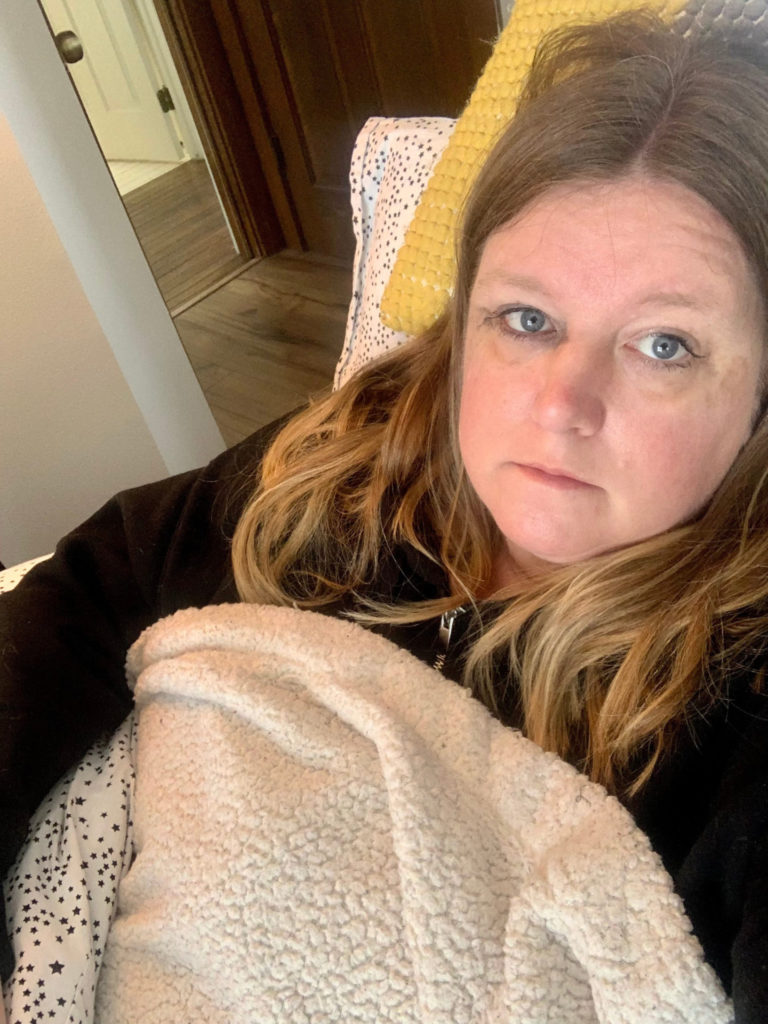
I went to coffee one day and it was a really eye-opening moment. After I left the coffee shop, I was sitting at the stoplight and I was just waiting for it to turn green so that I could go. I remember thinking, I don’t want to be here anymore. I don’t want to be alive anymore. I felt like such a huge burden to my parents at this point. I had more skin checks and they all came back with needing more biopsies. Luckily, none of them were melanoma at that point, but they were coming back atypical and I couldn’t see a future that didn’t involve my family having to take care of me and me being terrified of cancer and having more biopsies and more surgeries. It felt hopeless like there was no way out.
I had struggled with depression in the past, so when that thought crossed my mind, I immediately was aware of it and caught it and was like, this is not okay. I don’t want to feel this way. Because of my history of depression, I was able to talk to my mom about it. We have a pretty open relation
